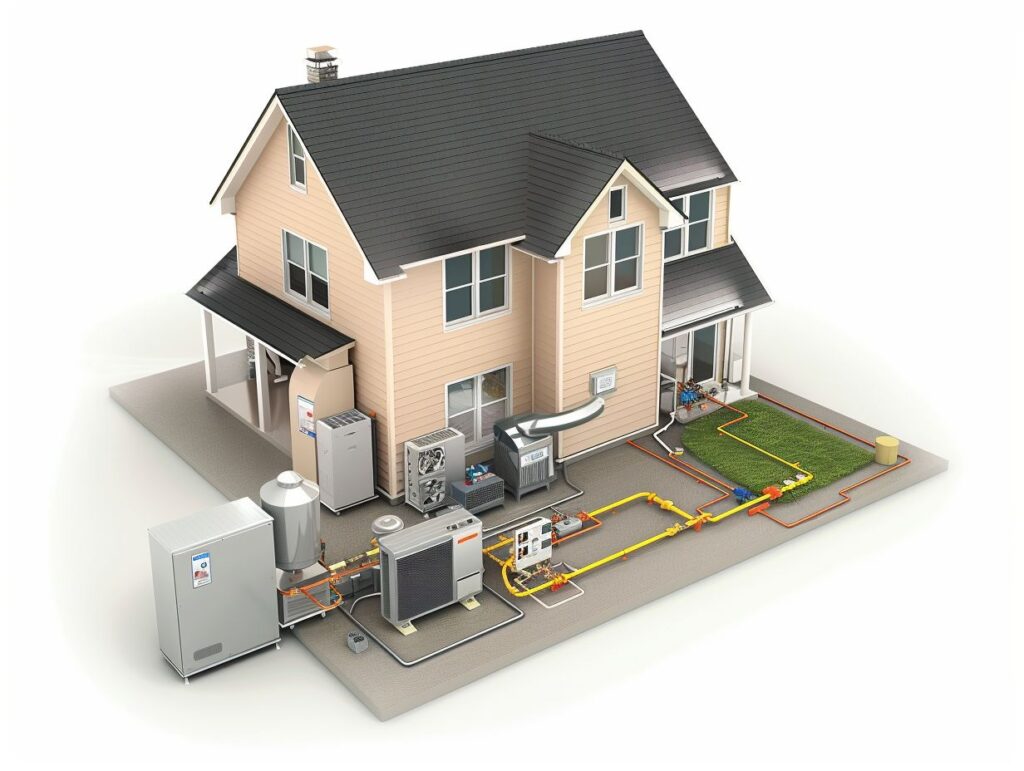Interested in learning about dual fuel heating systems and their longevity? The following will delve into the details of these systems, covering their definition, the factors influencing their lifespan, and the industry benchmarks for durability.
Discussion will also include indicators of an aging system and practical measures to prolong its life through proper maintenance and enhancements. Keep reading to discover effective strategies for ensuring the longevity of your dual fuel heating system.
Key Takeaways:
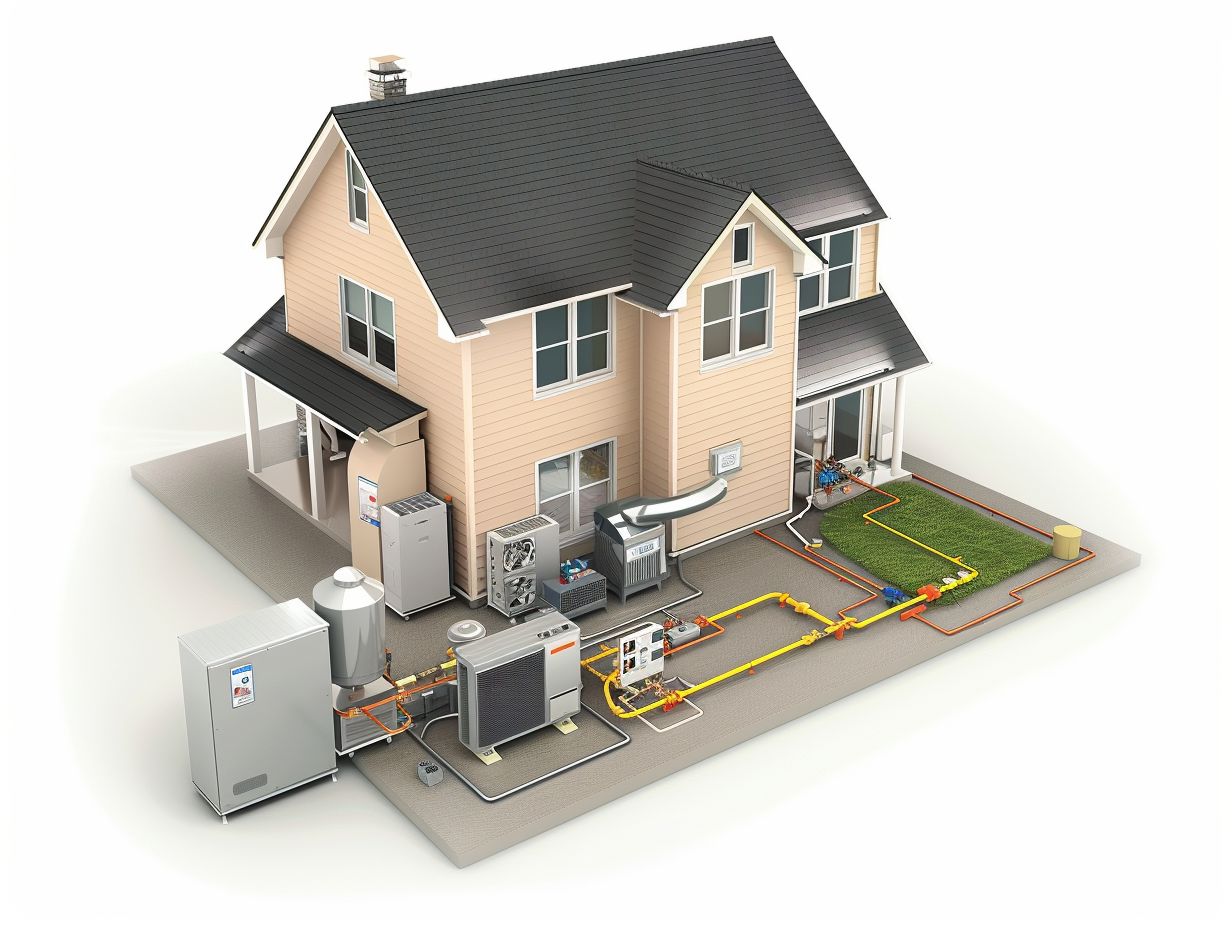
- Dual fuel heating systems are a combination of a heat pump and a gas furnace, allowing for efficient and versatile heating options.
- The average lifespan of a dual fuel heating system is 15-20 years, but factors such as maintenance, usage, and climate can affect its longevity.
- Regular maintenance, timely repairs, and upgrades can extend the lifespan of your system and save you money in the long run.
Factors Affecting Lifespan
Various factors can impact the lifespan of your heating system, such as regular maintenance, the quality of the heat pump system, access to service, and the type of renewable heating used, like ground source heat or solar thermal systems.
Regular maintenance is essential for ensuring that your heating system operates efficiently. By conducting regular inspections, cleaning, and servicing, you can catch potential issues early on, preventing major breakdowns and prolonging the system’s lifespan.
Having access to timely professional service is crucial for addressing any unexpected malfunctions promptly, minimising downtime. Utilising renewable heating sources like ground source heat pumps not only reduces environmental impact but also helps extend the system’s lifespan by providing reliable and sustainable energy to heat water and spaces efficiently.
Key Factors that Impact System Longevity
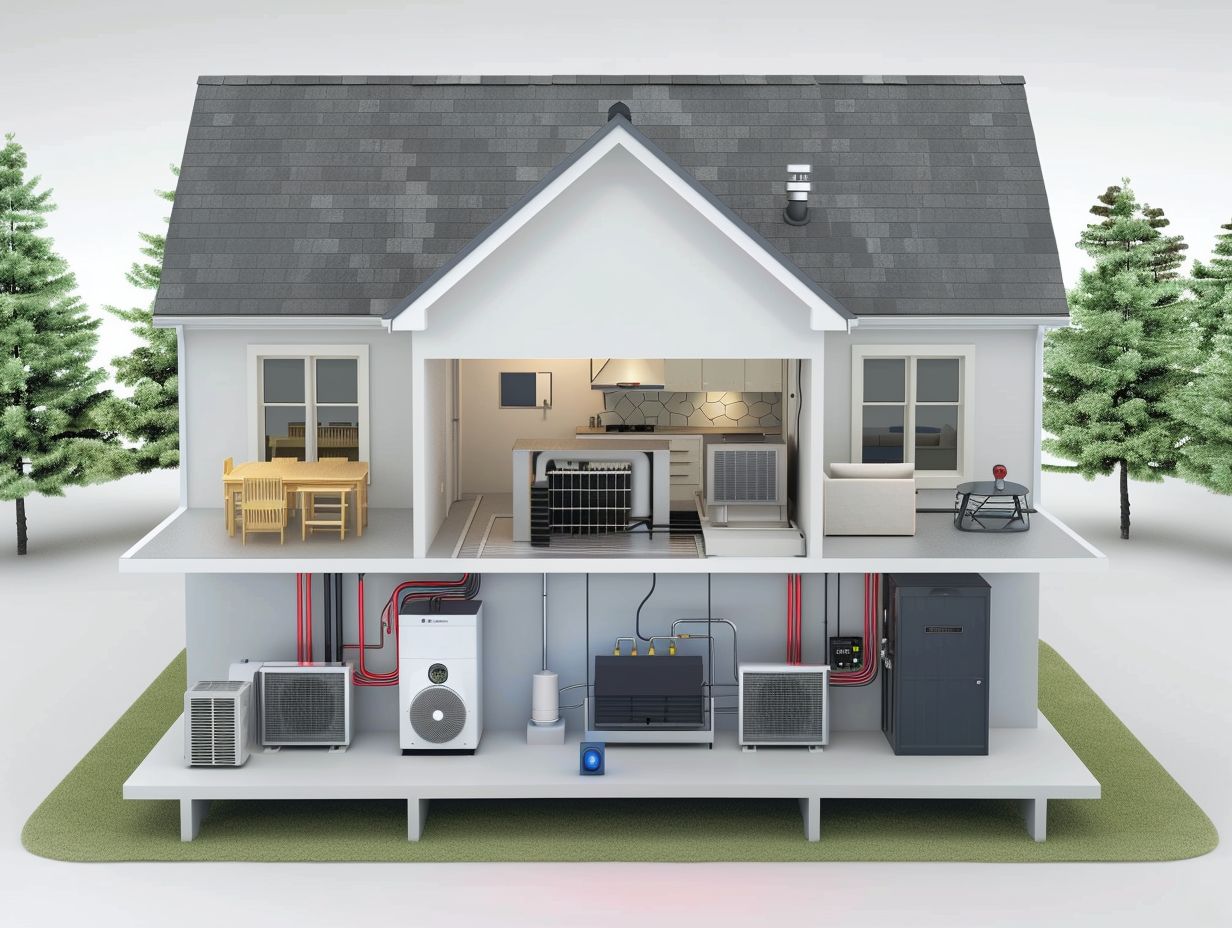
Key Factors that Impact System Longevity include regular maintenance of the heat pump system, prompt servicing of any issues, and ensuring the efficient operation of heat pumps to extend the overall lifespan of the heating system.
Regular maintenance routines play a crucial role in preserving the optimal performance of heat pumps. Through periodic check-ups and cleaning, the system can operate efficiently, reducing the risk of breakdowns and costly repairs.
Service checks help professionals identify and address minor issues before they escalate, preventing potential damage to the heat pump and the entire heating system.
By proactively caring for your heat pump and ensuring it operates at peak efficiency, you not only increase its longevity but also enhance the overall effectiveness of your heating setup.
Average Lifespan of Dual Fuel Heating Systems
In regions such as Northeast Ohio, where heating systems face extensive use, the average lifespan of Dual Fuel Heating Systems, serviced by reputable HVAC companies like Stack Heating & Cooling in Cleveland, Ohio, may vary depending on the quality of components and installation.
Local weather conditions in places like Northeast Ohio, which are known for harsh winters, can have an impact on the longevity of dual fuel heating systems.
Regular professional maintenance, including inspections of gas and oil components, is crucial to ensure optimal performance and prolong the system’s lifespan. Adequate maintenance helps in preventing breakdowns and inefficiencies, maximising the utilisation of fossil fuels.
With the expertise of HVAC technicians like those at Stack Heating & Cooling, homeowners can rely on dependable service to maintain the efficiency of their dual fuel systems for years to come.
Industry Standards and Expectations
Industry standards and expectations for Dual Fuel Heating Systems often align with renewable energy initiatives like the Renewable Heat Incentive (RHI) scheme, promoting the adoption of solar thermal systems alongside traditional heating methods such as oil furnaces.
These regulatory frameworks serve as guidelines for companies and homeowners seeking to enhance energy efficiency and reduce carbon footprints.
By integrating solar technologies into dual fuel systems, you can not only lower your environmental impact but also benefit from potential cost savings over the long term.
The role of oil furnaces in the heating sector remains significant, providing reliable backup heat sources during peak demand periods or when renewable sources may not suffice.
Compliance with schemes like RHI ensures that heating systems meet established efficiency standards and contribute to a more sustainable energy future.
Signs of Ageing and Maintenance Tips
Recognising Signs of Ageing in a dual fuel heating system involves observing decreased efficiency, unusual noises during operation, and inconsistent heating. These signs indicate the need for maintenance, such as cleaning the heat pump and ensuring optimal functioning of the entire unit.
Maintaining the heat pump regularly is crucial to its efficient operation. One effective tip is to schedule annual inspections by a professional technician to verify the good working condition of all components.
Properly insulating ductwork can also enhance the system’s overall performance. Consistently replacing air filters and keeping the outdoor unit free of debris are preventive measures to avoid airflow restrictions and potential malfunctions. Proactively addressing any issues with the heat pump can prolong the system’s lifespan and reduce energy costs.
Recognising When Your System Needs Attention
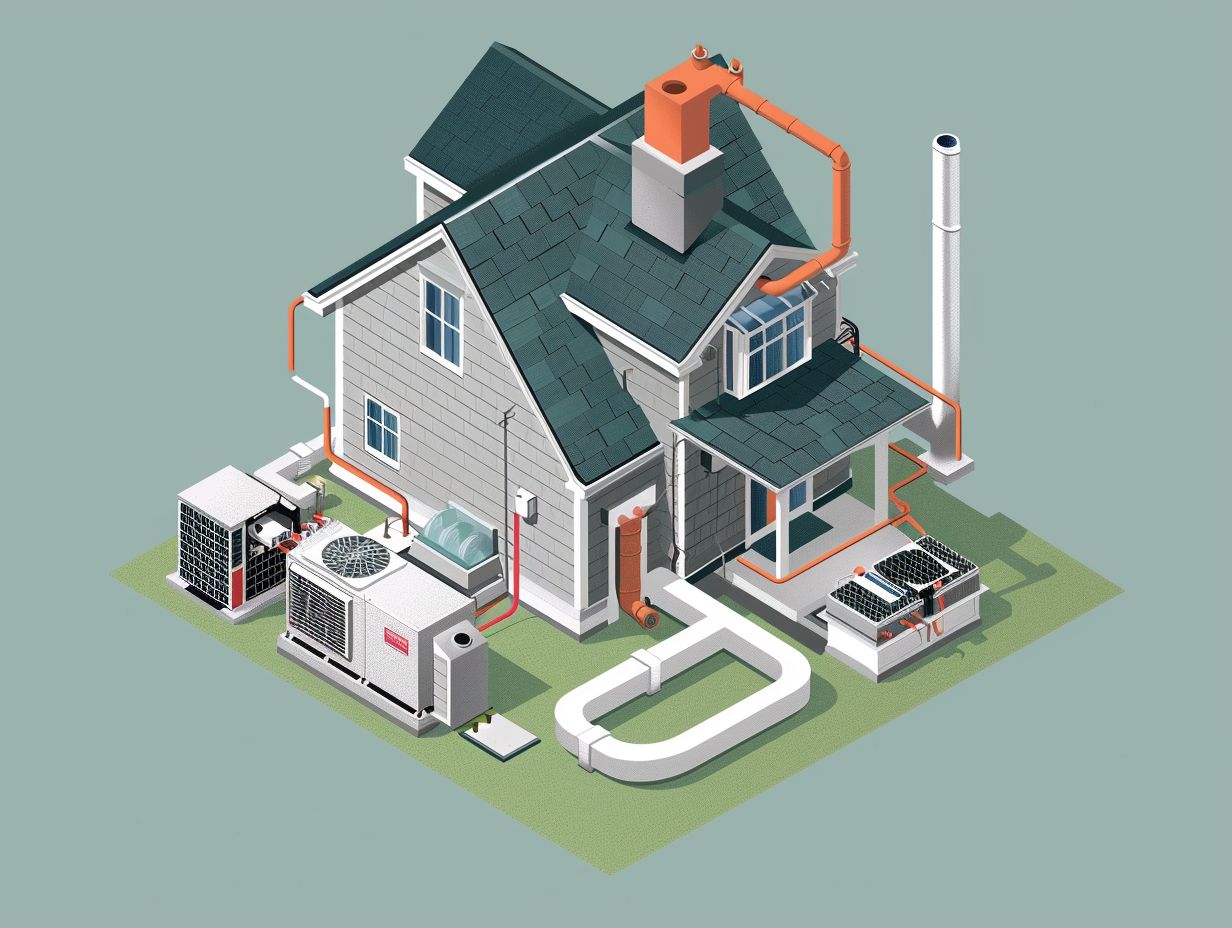
Recognising when your system needs attention involves monitoring energy consumption, noting changes in heating efficiency, and scheduling timely maintenance checks to ensure the system operates efficiently and effectively.
Regularly assessing the energy consumption patterns of your electric system could provide critical insights into its overall health. Unexplained spikes in electricity usage or inconsistent heating levels may indicate underlying issues that require professional attention.
By staying proactive and addressing maintenance needs promptly, you can not only optimise energy efficiency but also extend the lifespan of your system. Engaging professional services for routine maintenance can help identify potential problems before they escalate, ensuring smooth operations and minimising unexpected breakdowns.
Cost-Effective Ways to Extend Lifespan
To extend the lifespan of your dual fuel heating system in a cost-effective manner, it is important to focus on routine maintenance, optimisation of the heat pump system, and ensuring efficient operation of the heat pump to maximise both longevity and performance.
Regular maintenance tasks, such as replacing air filters, checking for leakages, and cleaning ductwork, play a crucial role in enhancing the efficiency and lifespan of your heating system.
Additionally, calibrating thermostats and scheduling professional inspections can help identify and address minor issues before they become major problems, ultimately avoiding expensive repairs.
By dedicating time to these maintenance activities, homeowners can not only reduce energy costs but also prevent premature wear and tear on their dual fuel heating systems.
Tips for Maintaining and Upgrading Your System
Tips for Maintaining and Upgrading Your System include utilising renewable energy sources like air source or ground source heat pumps, integrating systems that can efficiently heat water, and exploring options for enhancing energy efficiency within the heating setup.
One effective way for you to boost the energy efficiency of your heating system is to ensure proper insulation in your home. By sealing any drafts or gaps around windows, doors, and other potential leak points, you can prevent heat loss and reduce the workload on your heating system.
Regular maintenance checks and timely replacements of air filters can help optimise the performance of your system. Considering investing in a smart thermostat can also lead to significant energy savings by allowing you to regulate the temperature more efficiently.
Frequently Asked Questions
1. How long do dual fuel heating systems typically last?
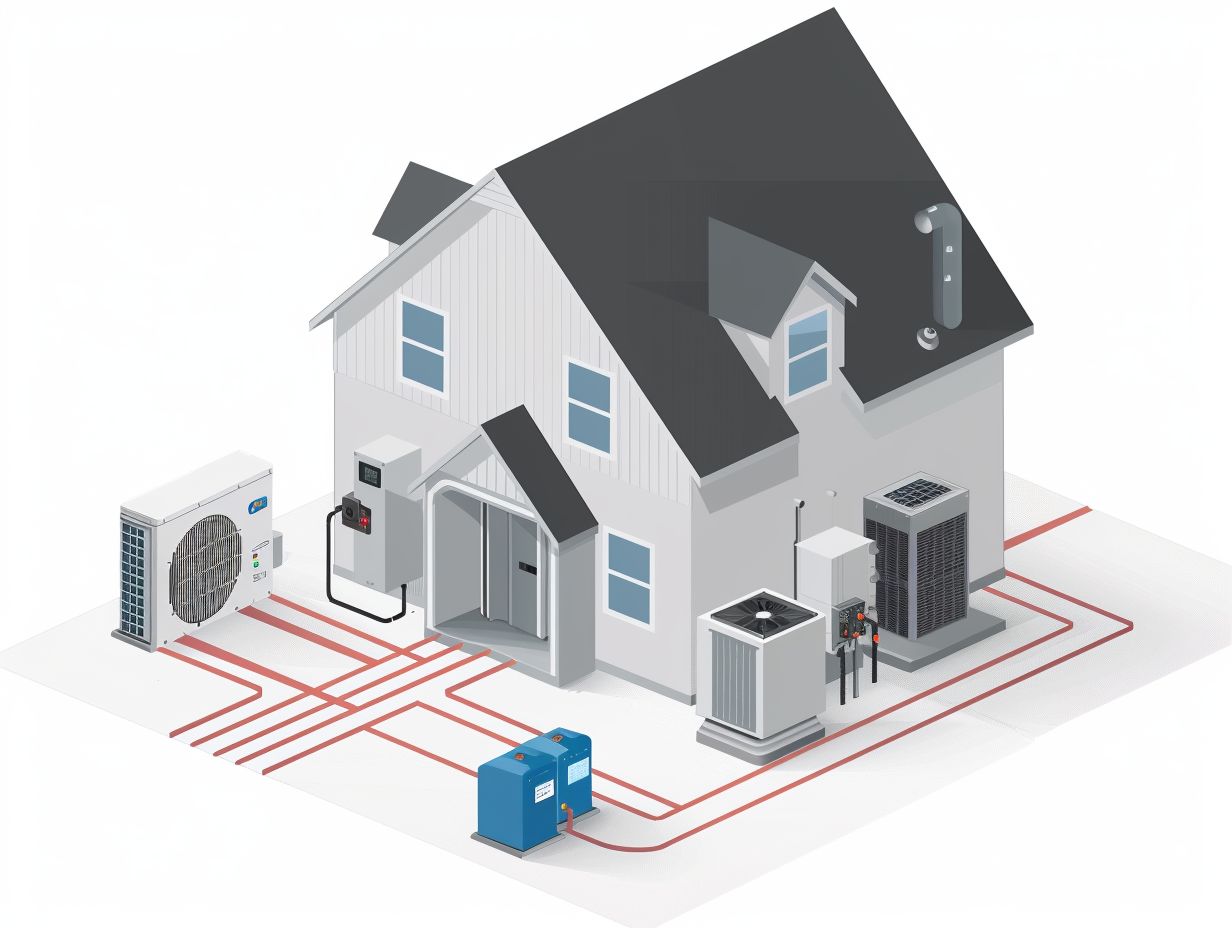
Dual fuel heating systems can last anywhere from 15 to 20 years, but the lifespan can vary depending on usage, maintenance, and other factors.
2. What factors can affect the lifespan of a dual fuel heating system?
Factors such as the quality of installation, regular maintenance, and usage patterns can all impact how long a dual fuel heating system will last.
3. Is it necessary to have regular maintenance for a dual fuel heating system?
Yes, regular maintenance is essential for maintaining the longevity of a dual fuel heating system. It is recommended to have a professional inspection and tune-up every year.
4. What are some signs that a dual fuel heating system may need to be replaced?
Signs that a dual fuel heating system may need to be replaced include frequent breakdowns, rising energy bills, uneven heating, and strange noises or odors coming from the system.
5. Can a dual fuel heating system be upgraded or repaired instead of replaced?
In some cases, a dual fuel heating system may be able to be upgraded or repaired instead of replaced. However, it is best to consult with a professional to determine the most cost-effective solution.
6. How can I ensure the longest lifespan for my dual fuel heating system?
The best way to ensure a long lifespan for your dual fuel heating system is to have it professionally installed, schedule regular maintenance, and promptly address any issues or repairs. Proper usage and care can also help prolong the system’s lifespan.

